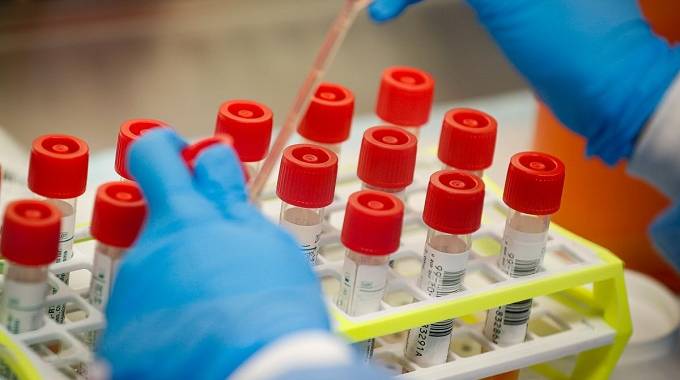Zimbabwe doing well in flattening Covid-19 curve

Nqobile Tshili, Chronicle Reporter
THE country is still doing well in terms of flattening the Covid-19 curve through few local transmissions but authourities need to put in measures to ensure that quarantine centres do not result in the virus spreading into communities.
The country has recorded a 260 percent increase in Covid-19 cases within a week as quarantine facilities accommodating returning citizens from neighbouring countries have become epicentres of the pandemic.
Since March 20 when the country recorded its first Covid-19 case to May 25, Zimbabwe had 56 confirmed cases but the last eight days have seen the cases jumping to 206.
Most of the recorded cases were recorded at quarantine centres sheltering Zimbabwean citizens returning mostly from South Africa, Botswana and Mozambique.
The country is also recording local transmissions although at a minimal rate.
The spike in Covid-19 cases has shaken the nation, especially considering that the country is approaching winter when experts predict that the virus spreads more.
It also comes at a time when some people are disregarding lockdown regulations meant to curb the exponential spread of the virus.
Experts say the increase in the number of cases is directly linked to mass testing that Government has embarked on.
A local medical expert Dr Ritta Dlodlo said it was not surprising that most of the country’s cases were emanating from quarantine facilities accommodating returnees from South Africa, which is Africa’s epicentre.
As of yesterday afternoon, South Africa had recorded more than 35 000 confirmed cases and 705 deaths.
Dr Dlodlo said if quarantine centres are not properly managed they can lead to the outbreak of the virus in communities.
“Relevant authorities should pay particular attention to the receiving centres. So that persons are not exposed to Covid-19 while in there. There should be no risk for the staff attending to the people at the centres.
Circumstances in general need to be conducive for people wanting to honour and respect quarantine recommendations,” she said.
Dr Dlodlo said while quarantine facilities do not need to be luxurious, they should be habitable to curb incidences of returnees escaping from facilities.
Police have said as of Tuesday 158 people had escaped from quarantine centres countrywide.
Dr Dlodlo said special attention should be given to staffers who attend to returnees as they are a part of the people who can spread Covid-19 when they return to their homes.
She said the country was still doing well in terms of flattening the Covid-19 curve as shown by few local transmissions.
Former Mpilo Central Hospital clinical director Dr Wedu Ndebele, said the public seems to have relaxed on adherence to level two lockdown regulations.
He said while most people have face masks, some wear them below their neck, defeating the purpose of the need to wear them, which could result in those with the virus spreading it.
Dr Ndebele said the virus survives longer on surfaces in winter and the risk of contracting Covid-19 increases.
“We need to enforce the measures more than we are doing because I think people have relaxed. When we started, I think we started fairly well but now people have completely relaxed. People think they are solving economic problems by going back to their normal ways. But in actual sense the situation may get worse if the virus spreads because those providing essentials will have to close if people are diagnosed within their premises,” said Ndebele.
He said the country should guard against the outbreak of the virus which can collapse the already fragile health sector.
“Our capacity is very limited. People are busy trying to make as many (isolation medical) centres as possible that means that if there are more people that are sick especially the moderate to severe that need hospitalisation, we will definitely not have enough beds to admit all these sick people. So that’s the impact on the health,” he said.
Zimbabwe Hospital Doctors Association president Tawanda Zvakada hailed the increase in the number of people tested for Covid-19.
As of Tuesday, the country had conducted more than 48 000 tests.
He said the public should observe Covid-19 prevention measures as the virus will remain with us for a long time.
“It means we need to practice more caution, more preventative measures and above all we need to learn to live with Covid-19 as it shows that it’s within the country for a while. We need to co-exist with it. By that I mean come up with measures we can do to ensure that it doesn’t spread more but we can allow for people to do other things that will allow them to survive because it’s not always about Covid-19,” said Dr Zvakada.
Dr Zvakada said with an increasing number of Covid-19 cases, Government must speed up the process of setting up medical isolation centres to cater for those critical.
“The statistics show that the worst is yet to come, these isolation centres need to be equipped with ventilators and oxygen. In addition, Government should ensure that health workers are well motivated as opposed to working in environments as if it’s under command. It has to ensure that the workers are well motivated like in other countries and have the desire to be on the frontline not as duty but as a way of serving fellow countrymen. This can be done through proper remuneration and ensuring that they have adequate Personal Protective Equipment,” said Dr Zvakada. — @nqotshili








Comments